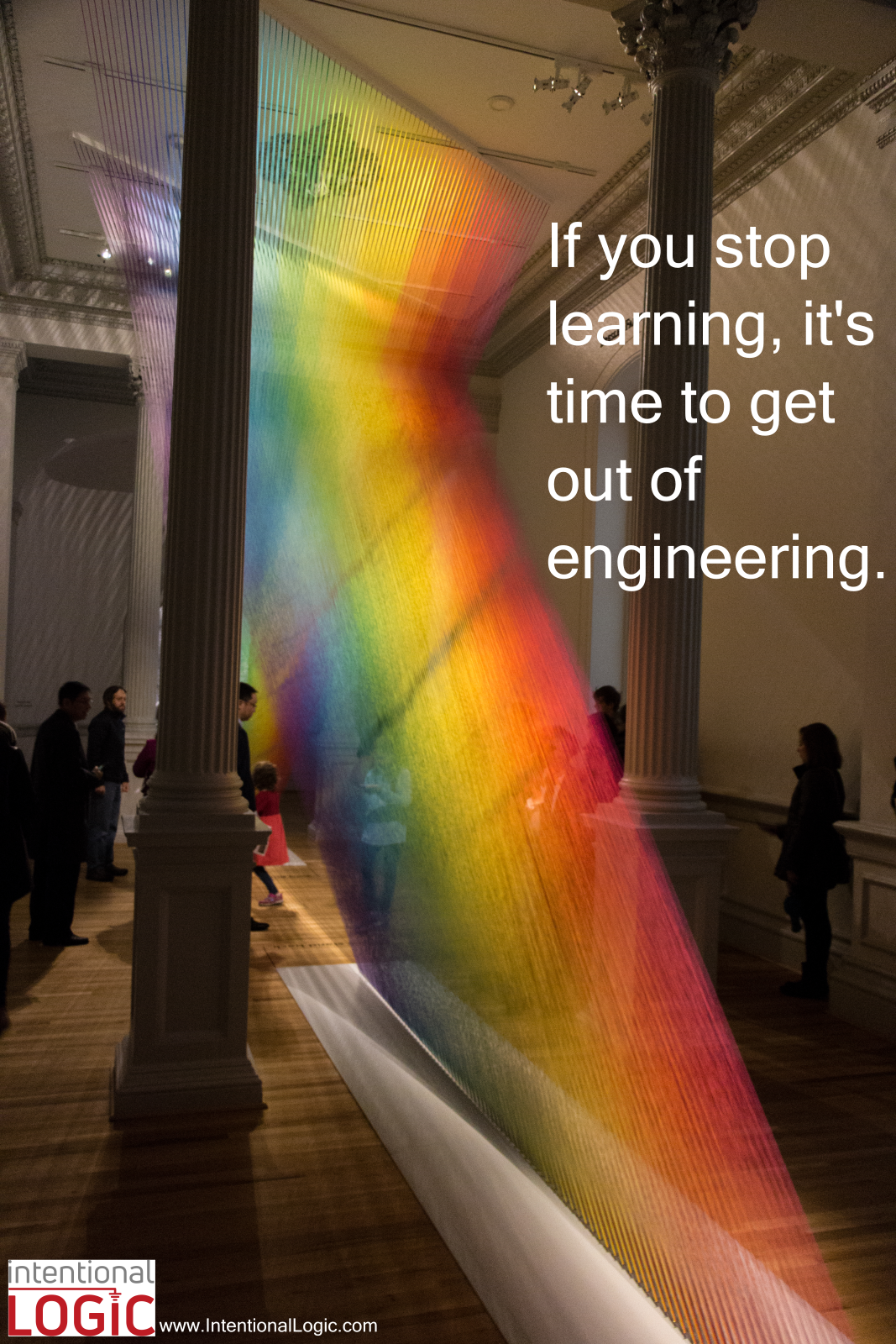Mistakes Will Happen
Mistakes will happen; it’s inevitable.
If you made the mistake, did you try to cover up the mistake? Did you beat yourself up over it? Did you disengage from the situation?
If you are the coworker of the one who made the mistake, did you ridicule him/her? Did you talk behind their back, gossiping about the mistake?
If you are the boss, did you write up the employee? Publicly shame them? Demote them? Or delay their promotion?
It’s how you respond to mistakes (yours and others) that defines who you are as a person.
Mistakes Are Necessary
 If you are not making mistakes, then you are doing it wrong. As engineers, we should be pushing the boundaries. We should be doing things that we have never done before. Otherwise, we are not learning anything and we are not helping our employer stand out from the competition. Anytime you are learning, you will make mistakes. That’s just the way life is.
If you are not making mistakes, then you are doing it wrong. As engineers, we should be pushing the boundaries. We should be doing things that we have never done before. Otherwise, we are not learning anything and we are not helping our employer stand out from the competition. Anytime you are learning, you will make mistakes. That’s just the way life is.
Even in risk-adverse industries like aerospace and medical, engineers need to push themselves. The trick, of course, is to push boundaries in ways that don’t endanger customers or the company.
Sometimes, engineers might find themselves in companies that do not provide ways for engineers to grow. In those situations, you have you ask yourself if that is the correct workplace for you.
Bad Mistakes
There are bad mistakes. These are mistakes where there is no excuse. Maybe this is the fourth time you’ve made the mistake. Maybe your coworkers have warned you about it in advance. Maybe you’ve received training about it, and ignored the training.
Recently, Hawaii had a false missile warning. There were many issues (including bad user interface design), but the person responsible was fired. If the news reports are accurate, this person had a history of making the same mistake over the span of years. This person had no excuse and probably deserved being fired.
A bad mistake that is worth mentioning is harassment due to racism, sexism, and bigotry. At this point, everybody has been warned so there is absolutely no excuse.
Of course anything risking life and safety is a bad one.
The Cost Of A Mistake
Unfortunately there is always a cost of a mistake. In engineering, that cost is usually real money and real time. Occasionally it might cost customers. You made prototypes but they were completely DOA. You made a last-minute change that ruined an entire production run. Or you failed to factor in something and it caused a million-unit product recall.
As an engineer, your job is to take risks but limit the negative effects. Take risks early in the design process, when there is less at stake. Simulate your design. Mock-up a test, or build prototypes.
How big a mistake can be before it warrants action (write-up, firing, etc.) really should be evaluated on a case by case basis. Some mistakes might justify termination on the spot. Other times, not so much.
I know of one mistake that cost a company more than US$2 million and the person responsible was not majorly disciplined. It was a painful lesson for everyone involved, but it was a lesson that was learned. I haven’t made one that large, but I have made my fair share!
Mistake Culture
It is super important to recognize the value of making mistakes. It is equally important to have a company culture where mistakes are understood for what they are— both good and bad.
If your company culture is dysfunctional about mistakes then things can be bad. You make a mistake that slips the schedule a month, but you delay in telling others as you try to spin, deflect, or hide from taking ownership. That delay costs valuable time. When the mistake comes to light, you are publicly ridiculed by your coworkers and your boss. Your engagement in your job plummets. Due to embarrassment, you don’t tell your coworkers what actually happened so they don’t learn from your mistake. The next time a coworker makes a mistake, they remember what happened to you and so they spend even more time trying to spin, deflect, or hide. It is a bad feedback loop that makes the dysfunction worse.
However, let’s say your company has a healthy culture. You make the mistake, but rather than hiding it, covering it up, or trying to blame someone else you can own up to it quickly. This allows your team to react quickly to minimize the repercussions. You can honestly tell your team what you did wrong so everybody can learn from your mistake. You and your team can decide what to do in the future so that mistake is not repeated.
If your company has a culture of allowing mistakes, it is easier to minimize the cost of mistakes.
In either case, the mistake was made. Nothing is going to change that. But the outcome of the mistake is vastly different. In a healthy company the mistake is handled quickly and minimized. Everybody benefits from the silver lining. In a dysfunctional company, the mistake brings everyone and the company down.
I’m not saying that there are not negative consequences to mistakes. In the worst case scenario the company ceases to exist or people die. Those kinds of mistakes, and even lessor ones, cannot be tolerated. But taking risks and making some kinds of mistakes should be not only tolerated but encouraged.
Tangent
This applies to parenting as well. As a parent, I would prefer it if my kids came to me early when a mistake was made. I want to minimize the damage of the mistake and help them learn from it.
I’ve seen the horror stories of kids that spilt paint and didn’t report it until it was much too late. Or overflowed the bathtub and didn’t say anything until the lower floor was flooded. Or overdosed on something and thought they could just “sleep it off”.
Being accepting of mistakes also encourages honesty and discourages harmful guilt.
What Kind Of Person Are You?
It’s how you respond to mistakes that defines who you are as a person. Does your response minimize damage and build up others, or does it tear them down? Do you help improve the company culture and foster teamwork, or do you encourage emotional walls to be built and coworkers to disengage from their job?
